The Draft of World Constitution
2024
黄頴㨗 Ying-Chieh Huang (黄穎捷 Huang, Ying Chieh 1951) from Taiwan
In order to promote a war-free and peaceful life among human races around the world, all human races around the world are welcome to work together to create the "Earth Peace and Unification Management Committee", to create a rationalized "World Constitution", and to construct a rationalized world government system.
The global human race is a republic, co-governance, co-existence, co-prosperity, and mutual benefit and win-win.
Let everyone in the human race have rational autonomy in life, no war, and live in peace and contentment on the earth.
Call on the political authorities of contemporary political entities with different ideologies around the world to use the 'world integrated administrative thought' that embraces the innovations of different ideological and political entities around the world, to jointly create a rationalized 'world constitution', to jointly construct a 'world government' system, and to jointly benefit all human beings around the world. Ethnic group.
This is the obligation and responsibility of contemporary global politicians.
Summary
Today on earth, the only way for human beings to implement and resolve the destructive crises of life on earth accumulated over many years of struggle, and to move towards war-free sustainable peace, coexistence, and common prosperity, is for the global political entities and political authorities to jointly transform the current United Nations. system, co-create a global political entity congress (Earth Peace and Unification Management Committee) of 'global democratic constitutional republican cosmopolitanism', co-create a rationalized 'world constitution', co-construct a world court system, and appropriately adjust the power of existing traditional political entities structure, co-constructing the "world integrated administration" world government system led by the global political collective in which "all human races are masters". Promote global war-free, global republic and co-governance, sustainable global peace, coexistence, co-prosperity, mutual benefit and win-win.
Create a world government system of mankind's "World Integrated Administration", stipulated in the rationalized "World Constitution" recognized by mankind around the world.
Rationalize the world government system of world integrated administration and implement the global political entity representative conference system.
The Global Political Entity Congress (Earth Peace and Unification Management Committee) is the highest authority of mankind in the world.
Powers and Responsibilities of the Global Political Entity Congress:
1. Elect the Central Committee of the Global Political Entity Congress.
2. Elect the Central Commission for Discipline Inspection of the Global Political Entity Congress.
3. Review the report submitted by the Central Committee of the Congress of Global Political Entities.
4. Review the report submitted by the Central Commission for Discipline Inspection of the Global Political Entity Congress.
5. Discuss and formulate global governance policies.
6. Create, formulate and amend the "World Constitution and Charter".
Through collective leadership, individual power is reduced as much as possible and decisions are made through consensus. Top leadership is made up of multiple people making decisions together. All members of the Central Standing Committee are on equal footing.
The Global Political Entity Congress has a Central Standing Committee; it mainly exercises legislative power and elects world heads (one chairman and five vice-presidents of the Global Political Entity Congress), administrative agencies (one prime minister of the world integrated administration world government, and five deputy prime ministers). people), global central military and public security organs (the Global Central Military and Public Security Commission has one chairman and five vice-chairmen), world judicial institutions (the World Court of Justice has one chairman and five vice-chairmen), world prosecutors (the World Procuratorate has one chairman and five vice-chairmen) people) and other positions.
He is the chairman of the Global Political Entity Congress and also serves as the chairman of the global central military and public security, making him the world's most powerful leader.
The World Integrated Administration World Government is the highest administrative executive body in the human world.
The world integrates administrative world government and implements the prime minister's responsibility system.
The Prime Minister of the World Integrated Administration World Government is nominated by the President of the Global Political Entity Congress and appointed by the Global Political Entity Congress.
The Prime Minister of the World Integrated Administrative World Government comprehensively leads the work of the World Integrated Administrative World Government system and is responsible to the Global Political Entity Congress and its Standing Committee.
The Global Central Military and Public Security Commission leads the global military and public security force system and maintains global public security.
Agencies at all levels of the global political system implement local autonomy regulations for agencies at all levels of the global political system in accordance with the global governance policy of the World Integrated Administrative World Government.
The Congress of Contemporary Global Political Entities has the right to revoke "inappropriate decisions" of its Standing Committee.
Institutions at all levels of contemporary global political entities should ultimately be accountable to the Congress of Global Political Entities.
The world's government system of justice consists of three major systems: the Global Central Military and Public Security Commission, the World Prosecutor's Office, and the World Court. The three systems divide their labor and cooperate and restrict each other.
This creation system adds a new administrative level to all levels of the global government.
The current situation of political parties in the world is that there is no unified political leadership center in the world, and civil wars and international conflicts continue for the benefit of nationalism.
The current United Nations is just a communication platform for various countries. It does not include the design of global human political functions and does not have the functions of global republic and co-governance.
This article creates the idea of 'global democratic constitutional republican cosmopolitanism' for human beings on earth, uses a democratic centralized collective decision-making system, and effectively operates a 'world government system' of 'world integrated administration'. Humanity will be able to live without war, resolve current vicious risks, coexist, and Prosperity together.
Pattern narrative
1. Dialectics of human malignant risks
Scientific evidence, including the 2010 book The great challenge of our time by Swedish financial investment expert Laszlo Sombafavi, shows that global greenhouse gases must begin to decline in 2015 to limit the rise to no more than 2 degrees Celsius. Otherwise, the earth will enter an irreversible vicious cycle, including wars, plagues, famines, droughts, floods, hurricanes and other disasters that will take turns sweeping the earth.
The IPCC Global Climate Summit has been held for 30 years, but the average atmospheric carbon dioxide concentration is as high as 415ppm and continues to rise.
Scientists point out that there is a 93% chance of preventing the global average temperature from rising by 2 degrees Celsius, but only by strictly unifying global legislation, changing the current living habits and ways of human beings around the world, and effectively controlling it can there be hope.
There are two directions to avoid the detonation of climate and environmental disasters and change the living habits of human beings on the earth:
1. Provide moral persuasion to human beings around the world and change their living habits.
2. Establish appropriate and unified new rules of life for human beings around the world, and strictly implement legislation.
Human groups around the world have taken the initiative to spread moral persuasion to humans and change their living habits, but so far the implementation results have not met expectations.
Today, the only way to save the earth and prevent detonation is to formulate unified new rules of life for humans around the world and strictly implement legislation to ensure the goal of human coexistence and common prosperity.
This is a human emergency.
Currently, the human organization with the most effective administrative execution on earth is a national organization.
However, national organizations are in a competitive position with each other in the use of earth's resources.
The most terrifying tool for killing human beings in human history is not ships, guns, or technological weapons, but national organizations or various political entities or regional groups that are so-called to safeguard people's security.
Therefore, if various national organizations or other political entities do not have effective unification and restraint forces to restrain them from competing for the interests of national political entities, they will not be able to effectively control the earth's average temperature and avoid the possibility of rising by 2 degrees Celsius.
The United Nations organizational model is an expedient organization designed at the end of World War II to stabilize world peace and adapt to the war-torn environment at that time, resulting in a new order. However, the contemporary United Nations, on the contrary, frames the traditional ideological correspondence model of struggles between countries and between ethnic groups, leading to conflicts between countries and ethnic groups based on their interests.
World War The establishment of the United Nations after World War II was supposed to "end all wars." However, the structure and function of the United Nations allowed humans on earth to still have more than 150 large-scale wars, thousands of small battles, and armed forces after World War II. Armed conflicts such as rebellion and revolution.
According to statistics by Hungarian scholars, in the 37 years after World War II, 4,700 major and minor battles broke out in the world, and there were only 26 days without war. The combat death toll exceeded 23.14 million people. A 1995 United Nations report showed that war, brutality and persecution forced 50 million people around the world to become homeless at that time.
Since the War of Independence, the prosperous and powerful United States has prioritized American interests externally and implemented a democratic republican political system internally. It has become a political benchmark for countries around the world and promoted the rise of "global democratic constitutional republican cosmopolitan thought" in the nationalist struggles of countries around the world.
The current United Nations is only a communication platform for various countries and does not have the function of global republic and co-governance. The resolutions passed by the United Nations General Assembly do not have legal constraints on various political entities, resulting in ineffective results in world peace efforts.
There are 193 UN member states and 52 non-UN member states (excluding disputed areas). Currently, there are 245 political entities in the world. Therefore, the United Nations does not represent all mankind in an all-round way and has no fairness to all mankind. The existence of the United Nations has made the current world appear in a state of global "anarchy". Today, the United Nations is a stumbling block to the "coexistence and common prosperity" of mankind around the world.
This article discusses cosmopolitanism, that is, innovative "global democratic constitutional republican cosmopolitanism."
This is to promote all human beings on the earth to sit on an equal footing under the limited resources of the earth, with mutual respect, mutual understanding, mutual love, mutual trust, fairness, justice, dignity, the submission of the minority to the majority, democratic centralization, and the global political entity authority to jointly create mankind. The game rules of common survival of "coexistence and co-prosperity" on the earth form the idea of the greatest and highest level "human social organization".
Today, the political authorities of political entities with different ideologies around the world must quickly wake up and face the rise of "global democratic constitutional republican cosmopolitanism". They must innovate the global political concept of "global democratic constitutional republican cosmopolitanism" and immediately step away from traditional nation-states. In the era, the struggle to liberate nationalism has jointly constructed the only rationalized "world integrated administrative world government" system that all mankind can rely on to "coexist and co-prosperity". Global republic, co-governance, co-existence, co-prosperity, mutual benefit, win-win, and benefit Global Humanity.
2. The connotation of "World Integrated Administrative Ideology and Politics":
I advocate that I am an "Earthling" and mobilize all human beings around the world to focus on the current political situation of global political entities and administrative regions, and advocate: "Jointly eliminate all military and armed aggression wars between countries in the world, including all internal and external, and build rational The world's integrated administrative global political development system".
Cultivate human races around the world to live on and care for the earth with a macroscopic heart, lock in the political functions of the current world political and administrative regions, abandon all the troubles and hatreds of the history of inter-ethnic political struggles, and establish a world government system that rationalizes the world's integrated administration A new world order system of global republic, co-governance of politics, and public security; transform the current terrible conflicting power and resources of war into construction and rehabilitation of the injured earth, rescue all vulnerable or disaster refugees in the world, unify the global human race, and move forward Towards an overall happy social life.
This case calls on the current global political entity authorities to use the principle of democratic centralism to conspire to abolish the United Nations structure and jointly create a global political entity representative conference, that is, to jointly create the "Earth Peace and Unification Development Management Committee" to jointly create a new world order governed by global law to rationalize A world constitution, construct a world court, appropriately unify and regulate certain powers that are inappropriate for the current global traditional national political entities, allow everyone to have rational autonomy in life, implement global co-governance with a rational world government system, and promote the human race on the earth. On the other hand, a properly rationalized and unified new law of life can appropriately resolve natural disasters, man-made disasters and government crises that cannot be handled by the respective political systems of the country. In this way, we can build a community with a shared future for human beings on the earth, coexistence, prosperity, mutual benefit, win-win, and happy development.
3. This case creates a world government system for the integrated administration of the human world on Earth, which is stipulated in this ‘World Constitution’.
This world constitution confirms the politics of the current global political entity in the form of law, develops in the political model of world integrated administration, and stipulates the fundamental system and tasks of the world government system of the current global political entity world integrated administrative political model. It is global politics The fundamental law that integrates the administrative world's government system in the physical world has the highest legal validity in the world. In this case, the global political entity world integrates the administrative world government system. All human races, the global political entity world integrates the administrative world government system and the global armed forces, all political parties, social groups, and enterprises and institutions must all be based on this world government system. The Constitution is the fundamental criterion of activity, and the dignity of the world constitution of the world government system in this case is maintained, and the world government system's responsibility for implementing the world constitution is guaranteed.
Chapter 1
General outline
Article 1
The global political entity world integrates the administrative government system, which is the global political innovation of cosmopolitanism, that is, the global political operation thought of "global democratic constitutional republican cosmopolitanism". Its purpose is to promote the current human race on the earth to live on an equal footing with limited earth resources, with mutual respect, mutual understanding, mutual love, mutual trust, fairness, justice, dignity, the minority obeying the majority, and democratic centralization (democratic decision-making, autocratic execution ), jointly draft the rules of the game for "coexistence and common prosperity" of human races around the world, forming the greatest, highest level and most politically effective "human political organization".
This system advocates that we are all "Earthlings" and that all human races in the world focus on the current geopolitical situation of political administrative regions and advocate: "To jointly eliminate internal and external illegal military armed aggression wars between political entities of various countries in the world, Building a global innovative world and integrating the fundamental system of administrative and political development.” It is prohibited for any organization or individual to undermine this global political system of "global democratic constitutional republican cosmopolitanism" that innovates cosmopolitanism.
Article 2
All power in the World Integrated Administrative World Government System belongs to the global human race.
The organ through which global humanity exercises the power of the world integrated administrative world government system is the Congress of Global Political Entities.
In accordance with the legal provisions of the world constitution in this case, global mankind manages the world's integrated administrative world government system affairs through the global political entity representative assembly.
Article 3
The world's integrated administrative world government system institutions implement the principle of democratic centralism in democratic decision-making and autocratic execution.
The resolutions of the global political entity congress are all produced through democratic elections and democratic centralism. They are responsible to global mankind and are subject to global human supervision.
The administrative organs, judicial organs, and procuratorial organs of the world integrated administration world government system are all generated by the global political entity congress, are responsible to it, and are supervised by it.
The current division of powers between global political entities and the world integrated administrative world government system follows the unified leadership principle of global governance policies of the world integrated administrative world government system, and is rationalized to give full play to the initiative and enthusiasm of the autonomy of global political entities.
Article 4
World Integrated Administration World Government System All peoples around the world are equal. The world integrates the administrative world government system to protect the legitimate rights and interests of all ethnic groups in global political entities, and maintain and develop the equality, unity, and mutual assistance relationships among all ethnic groups. Discrimination and oppression against any ethnic group are prohibited, as well as actions that undermine national unity and create national divisions.
All ethnic groups around the world have the freedom to reasonably use and develop their own spoken and written languages, and they all have the freedom to reasonably maintain or reform their own customs and habits.
Article 5
The global political entity world integrates the administrative world government system to maintain the legal unity and dignity of the innovative cosmopolitanism of "global democratic constitutional republican cosmopolitanism" in which you and I are "people of the earth".
All laws, administrative regulations and local regulations of individual global political entities must not conflict with the world constitution of the world's integrated administrative world government system.
All political entities and armed forces, political parties, social groups, and enterprises and institutions around the world must abide by this universal constitution. All violations of the world constitution must be investigated.
No organization or individual may have the privilege of transcending the world constitution and the world's integrated administrative world government system and global governance policies.
Article 6
The world integrated administrative world government system maintains social order, suppresses counter-revolutionary activities, sanctions activities that endanger global social security, undermine global social economy and other criminal activities, punish and reform criminals.
Article 7
The armed forces of the world's integrated administrative world government system are coordinated by the Global Central Military and Public Security Commission and belong to the global human race. Its mission is to consolidate the world's integrated administrative world government operating system.
Chapter 2
Fundamental Rights and Duties of Humanity Globally
Article 8
The global human race of the world's integrated administrative world government system is equal before the world's constitutional laws.
Every human being in the world enjoys the rights stipulated in the world constitution and must fulfill the obligations stipulated in the world constitution and laws.
Article 9
World Integrated Administration World Government System Global human beings have freedom of speech, press, assembly, association, procession, and demonstration.
Article 10
When the world's integrated administrative world government system allows global human beings to exercise their freedoms and rights, they must not harm the interests of the world's integrated administrative world government system, the global society, the global collective, and other human beings' legitimate freedoms and rights.
Article 11
Citizens of the World Integrated Administrative World Government System have the obligation to safeguard the unity of the World Integrated Administrative World Government System and the unity of all nationalities in the World Integrated Administrative World Government System.
Article 12
Citizens of the world's integrated administrative world government system must abide by the world's constitution and relevant laws, protect global public property, abide by global labor disciplines, abide by global public order, and respect global social ethics.
Article 13
Citizens of the World Integrated Administrative World Government System have the obligation to safeguard the security, honor and interests of the World Integrated Administrative World Government System, and must not act in ways that endanger the security, honor and interests of the World Integrated Administrative World Government System.
Article 14
Protecting the normal operation of the world integrated administrative world government system is the sacred duty of every citizen of the world integrated administrative world government system.
In accordance with the international constitution of this case, it is the honorable duty of citizens of the world's integrated administrative world government system to serve in the military and join the world's central military and public security system and join the world's public security militia.
Chapter 3
World Integrated Administration World Government System Institutions
Section 1
global political entity congress
Article 15
The Global Political Entity Congress is the highest authority of the world integrated administrative world government system. Its permanent body is the Standing Committee of the Global Political Entity Congress.
Article 16
The Global Political Entity Congress and the Standing Committee of the Global Political Entity Congress exercise the legislative power of the world integrated administrative world government system.
Article 17
The Global Political Entity Congress is composed of representatives of leaders of global political entities.
The Global Political Entity Congress is chaired by the Standing Committee of the Global Political Entity Congress.
Article 18
The Global Political Entity Congress meeting is held once a year and is convened by the Standing Committee of the Global Political Entity Congress. If the Standing Committee of the Global Political Entities Congress deems it necessary, or if more than one-fifth of the representatives of the Global Political Entities Congress propose, a meeting of the Global Political Entities Congress can be convened temporarily.
When the Global Political Entity Congress holds a meeting, it elects a bureau to preside over the meeting.
Article 19
The Global Political Entity Congress exercises the following powers:
(1) Amend the World Constitution;
(2) Supervise the implementation of the world constitution;
(3) Formulate and amend other basic laws for the world's integrated administrative world government system institutions;
(4) Elect the chairman and vice-chairman of the Global Political Entity Congress;
(5) Based on the nomination of the Chairman of the Global Political Entity Congress, decide on the candidate for the Prime Minister of the World Integrated Administrative World Government; based on the nomination of the Prime Minister of the World Integrated Administrative World Government, decide on the Vice Prime Minister of the World Integrated Administrative World Government, members of the Global Governance Policy Committee, ministers of various ministries, Candidates for the directors, auditor general, and secretary general of each committee;
(6) Elect the chairman of the Global Central Military and Public Security Commission; decide on the candidates for other members of the Global Central Military and Public Security Commission based on the nominations of the chairman of the Global Central Military and Public Security Commission;
(7) Elect the President of the World Court;
(8) Elect the Chief Prosecutor of the World Procuratorate;
(9) Review and approve global governance policy development plans and plans’ implementation reports;
(10) Review and approve the budget and budget implementation report of the Global Political Entity Congress World Integrated Administrative World Government;
(11) Change or revoke inappropriate decisions of the Standing Committee of the Global Political Entity Congress;
(12) Issues that determine global governance policies;
(13) Other powers that should be exercised by the authority of the Global Political Entity Congress.
Article 20
The Global Political Entity Congress has the power to remove the following persons:
(1) Chairman and Vice Chairman of the Global Political Entity Congress;
(2) Prime Minister, Deputy Prime Minister, Political Councilor, Ministers of Ministries, Directors of Committees, Auditor General and Secretary General of the World Integrated Administration World Government;
(3) Chairman and other members of the Global Central Military and Public Security Commission;
(4) President of the World Court;
(5) Prosecutor General of the World Procuratorate.
Article 21
The amendment of the World Constitution shall be proposed by the Standing Committee of the Global Political Entity Congress or more than one-fifth of the representatives of the Global Political Entity Congress, and shall be adopted by the Global Political Entity Congress with a majority of more than two-thirds of all representatives.
General laws and other bills are passed by the Global Political Entity Congress with a majority of all representatives.
Article 22
The Standing Committee of the Global Political Entity Congress is composed of the following personnel:
Chairman,
Several vice-chairmen,
Secretary General,
Several committee members.
The Global Political Entity Congress elects and has the right to recall members of the Standing Committee of the Global Political Entity Congress.
Members of the Standing Committee of the Global Political Entity Congress shall not hold positions in the world's integrated administrative government agencies, judicial agencies and prosecutorial agencies.
Article 23
Each term of the Standing Committee of the Global Political Entity Congress is five years, and it will exercise its powers until a new Standing Committee is elected at the next Global Political Entity Congress.
The Chairman and Vice Chairman shall not serve for more than two consecutive terms.
Article 24
The Standing Committee of the Global Political Entity Congress exercises the following powers:
(1) Interpret the World Constitution and supervise the implementation of the World Constitution;
(2) Formulate and amend laws other than world laws that should be enacted by the Congress of Global Political Entities;
(3) During the period when the Global Political Entity Congress is not in session, make partial supplements and modifications to the laws enacted by the Global Political Entity Congress, but this shall not conflict with the basic principles of the world constitution;
(4) Interpret world laws;
(5) During the intersession period of the Global Political Entity Congress, review and approve some adjustments that must be made during the implementation of the global governance policy plan and the world integrated administrative world government budget;
(6) Supervise the work of the World Integrated Administrative World Government, the Central Military Commission of the World Integrated Administrative World Government, the World Court and the World Procuratorate;
(7) Cancel administrative regulations, decisions and orders formulated by the World Integrated Administrative World Government that conflict with the World Constitution and laws;
(8) Cancel local regulations and resolutions of global political entities that are in conflict with the international constitution, laws and administrative regulations;
(9) During the intersession period of the Global Political Entity Congress, based on the nomination of the Prime Minister of the World Integrated Administration World Government, decide on the candidates for the minister, committee director, auditor general, and secretary general;
(10) During the intersession period of the Global Political Entity Congress, based on the nomination of the chairman of the Global Central Military and Public Security Commission, decide on the candidates for other members of the Global Central Military and Public Security Commission;
(11) Appoint and remove the Vice-President, judges, members of the Judicial Committee and the President of the Military Court of the World Court upon the request of the President of the World Court;
(12) Appoint and remove deputy prosecutors, prosecutors, members of the procuratorial committee and the chief prosecutor of the Military Procuratorate, based on the request of the General Prosecutor of the World Procuratorate, and approve the appointment and removal of the General Prosecutor of the World Procuratorate;
(13) During the recess of the Global Political Entity Congress, if the Global Political Entity is subject to armed aggression, it is decided to declare a state of war;
(14) Decide on general mobilization or partial mobilization of global political entities;
(15) Determine martial law for global political entities or individual provinces, autonomous regions, and municipalities directly under the Central Government;
(16) Other powers granted by the Global Political Entity Congress.
Article 25
The Chairman of the Standing Committee of the Global Political Entity Congress presides over the work of the Standing Committee of the Global Political Entity Congress and convenes meetings of the Standing Committee of the Global Political Entity Congress. The Vice Chairman and Secretary General assist the Chairman in his work.
The chairman, vice-chairman, and secretary-general form the Chairman's Conference to handle the important daily work of the Standing Committee of the Global Political Entity Congress.
Article 26
The Standing Committee of the Global Political Entity Congress is responsible for and reports on its work to the Global Political Entity Congress.
Article 27
The Global Political Entity Congress establishes the Global Administrative District Planning Committee, the Global Environmental Change Monitoring Committee, the Legal Committee, the Financial and Economic Committee, the Education, Science, Culture and Health Committee and other special committees that need to be established. During the intersession period of the Global Political Entity Congress, each special committee is under the leadership of the Standing Committee of the Global Political Entity Congress.
Under the leadership of the Global Political Entity Congress and the Standing Committee of the Global Political Entity Congress, each special committee studies, reviews and formulates other proposals related to global governance policies or the maintenance of sustainable development of global security.
Article 28
When the Global Political Entity Congress and the Standing Committee of the Global Political Entity Congress deem it necessary, they may organize an investigation committee on specific issues and make corresponding resolutions based on the investigation committee's report.
When the Investigative Committee conducts an investigation, all relevant global political entities, social groups and citizens are obliged to provide it with necessary materials.
Article 29
The members of the Global Political Entity Congress and the Standing Committee have the right to propose proposals within the scope of the Global Political Entity Congress and the Standing Committee respectively in accordance with the procedures stipulated in the constitution and laws.
Article 30
During the meetings of the Global Political Entity Congress, the representatives of the Global Political Entity Congress and the members of its Standing Committee have the right to raise questions about the World Integrated Administrative Government or its ministries and committees in accordance with the procedures prescribed by the Constitution and laws. The agency being questioned must be responsible for responding.
Article 31
Representatives of the Global Political Entity Congress are not subject to arrest or criminal trial without the permission of the presidium of the conference session or the permission of the conference standing committee during inter-session periods.
Article 32
The speeches and votes made by representatives of the Global Political Entity Congress at various meetings of the Global Political Entity Congress are not subject to legal accountability.
Article 33
Representatives of the Global Political Entity Congress must abide by the world constitution and laws in an exemplary manner and assist in the implementation of the world constitution and related laws.
Representatives of the Global Political Entity Congress should maintain close contact with the original political entities and the people, fully listen to and reflect the opinions and demands of the people, and strive to serve the people.
Article 34
Representatives of the Global Political Entity Congress are subject to the supervision of the original political entity unit. The original political entity unit has the right to remove the representative of the political entity unit in accordance with the procedures stipulated in the Constitution and other laws.
Article 35
The organization and working procedures of the global political entity congresses and standing committees are stipulated by law.
Section 2
Chairman of the Global Political Entity Congress
Article 36
The chairman and vice-chairman of the Global Political Entity Congress are elected by the Global Political Entity Congress.
Representatives of the Global Political Entity Congress who have the right to vote and be elected and who are over 45 years old can be elected as the Chairman or Vice-President of the Global Political Entity Congress.
Each term of the Chairman and Vice Chairman of the Global Political Entities Congress is the same as the term of each term of the Standing Committee of the Global Political Entities Congress, and they shall not serve more than two consecutive terms.
Article 37
According to the decisions of the Global Political Entity Congress and the decisions of its Standing Committee, the Chairman of the Global Political Entity Congress promulgates the constitution and laws, appoints and removes the Prime Minister, Deputy Prime Minister, Global Governance Committee, Ministers of various ministries, Directors of various committees, Auditor General, and Secretary of the World Integrated Administrative Government. Governor, award medals and honorary titles to global political entities or those who have contributed to global governance, issue amnesty orders, issue martial law, declare a state of war, and issue mobilization orders.
Article 38
The Vice-President of the Global Political Entity Congress assists the President in his work.
The Vice-Chairman of the Global Political Entity Congress is entrusted by the Chairman and can perform some of the powers of the Chairman.
Article 39
The Chairman and Vice Chairman of the Global Political Entity Congress shall exercise their powers until the Chairman and Vice Chairman elected by the next Global Political Entity Congress take office.
Article 40
When the Chairman of the Global Political Entity Congress becomes vacant, the Vice Chairman shall take over the position of Chairman.
When the vice-president of the Global Political Entity Congress becomes vacant, the Global Political Entity Congress will elect a by-election.
When both the Chairman and Vice-Chairman of the Global Political Entity Congress are vacant, the Global Political Entity Congress will hold a by-election; before the by-election, the Chairman of the Standing Committee of the Global Political Entity Congress will temporarily act as the chairman.
Section 3
World Integrated Administrative Government
Article 41
The World Integrated Administration World Government, that is, the Central People's Government of the Global Political Entity Congress, is the executive agency of the highest global political entity power agency and the highest global political entity global governance administrative agency.
Article 42
The World Integrated Administration World Government is composed of the following personnel:
Prime Minister,
Several deputy prime ministers,
Several members of the Global Governance Committee,
Ministers of various ministries,
Chairman of each committee,
Auditor General,
Secretary General.
The world integrated administration world government implements the prime minister's responsibility system. Each department and committee implements the responsibility system of ministers and directors.
World Integrated Administration The organization of the world government is regulated by law.
Article 43
The term of office of the Prime Minister, Vice Prime Minister and Global Governance Committee of the World Integrated Administration World Government is the same as the five-year term of the Standing Committee of the Global Political Entity Congress.
The Prime Minister, Deputy Prime Minister, and Global Governance Committee shall not serve more than two consecutive terms.
Article 44
The Prime Minister leads the world's efforts to integrate administrative world government. The Vice Prime Minister and Global Governance Committee assist the Prime Minister in his work.
The Prime Minister, Deputy Prime Minister, Global Governance Commissioner, and Secretary-General form the World Integrated Administrative Government Standing Conference.
The Prime Minister convenes and presides over the World Integrated Administrative Government Standing Meeting and the World Integrated Administrative World Government Plenary Meeting.
Article 45
The World Integrated Administration World Government exercises the following powers:
(1) In accordance with the world constitution and laws, stipulate administrative measures for global governance, formulate administrative regulations for global governance, and issue decisions and orders;
(2) Propose proposals to the Global Political Entity Congress or its Standing Committee;
(3) Define the tasks and responsibilities of ministries and committees, uniformly lead the work of ministries and committees, and lead global governance administrative work that does not belong to ministries and committees;
(4) Unify the leadership of the work of the administrative agencies of the global political entity world integrated administrative government system, and stipulate the specific division of powers of the administrative agencies at each level of the global political entity world integrated administrative government system;
(5) Prepare and implement global human economic and social development plans and global governance budgets for global political entities;
(6) Lead and manage the global economic and urban and rural construction operation system;
(7) Lead and manage the global education, science, culture, health, sports and family planning operating systems;
(8) Lead and manage the global civil affairs, public security, judicial administration, supervision and other operational systems;
(9) Lead and manage the global public security construction and operation system;
(10) Change or cancel inappropriate orders, instructions and regulations issued by ministries and committees;
(11) Change or revoke inappropriate decisions and orders of administrative agencies of global political entities;
(13) Other powers granted by the Global Political Entity Congress and the Standing Committee of the Global Political Entity Congress.
Article 46
The ministers and committee directors of the world integrated administrative world government system are responsible for the work of their departments; they convene and preside over ministry meetings or committee meetings to discuss and decide on major issues in the work of their departments.
Ministries and committees issue orders, instructions and regulations within the authority of their own departments in accordance with the administrative regulations, decisions and orders of the world's constitutional laws and the world's integrated administrative world government.
Article 47
The World Integrated Administrative World Government has established an auditing agency to audit and supervise the financial revenues and expenditures of various departments of the World Integrated Administrative World Government and local governments at all levels, as well as the financial revenues and expenditures of financial institutions and enterprises and institutions of global political entities.
Under the leadership of the Prime Minister of the World Integrated Administrative Government, the audit agency independently exercises audit supervision rights in accordance with the provisions of the World Constitution and laws, without interference from other administrative agencies, social groups and individuals.
Article 48
The World Integrated Administration World Government is responsible for and reports its work to the Global Political Entity Congress; during the intersessions of the Global Political Entity Congress, it is responsible and reports its work to the Standing Committee of the Global Political Entity Congress.
Section 4
Global Central Military and Public Security Commission
Article 49
The Global Central Military Commission leads the global public security armed forces.
The Global Central Military Commission is composed of the following personnel:
President,
Several vice-chairmen,
Several committee members.
The Global Central Military Commission implements the chairman's responsibility system.
The term of each term of the Global Central Military Commission is the same as the five-year term of each term of the Standing Committee of the Global Political Entity Congress.
Article 50
The Chairman of the Central Military Commission of the Global World is responsible to the Congress of Global Political Entities and the Standing Committee of the Congress of Global Political Entities.
Section 5
global political entity autonomous government
Article 51
Under the premise that the laws and administrative regulations of different world constitutions, world integrated administration and world governments conflict with each other, global political entities can formulate regulations on the autonomy of each political entity and submit them to the Standing Committee of the Global Political Entities Congress for the record.
Article 52
The autonomous governments of various political entities around the world can organize local public security forces to maintain public security in accordance with the global Central Military Commission system and actual local needs, and with the approval of the world integrated administrative government.
Section 6
World Court of Justice and World Prosecutor's Office
Article 53
The World Court of Representatives of Global Political Entities is the tribunal of global political entities.
Article 54
The Congress of Representatives of Global Political Entities establishes specialized courts such as the Supreme World Court and the World Military Court.
The term of office of the President of the Supreme Court is the same as the term of five years of the Standing Committee of the Global Political Entity Congress, and he shall not serve more than two consecutive terms.
The organization of the World Court is provided for by the laws of the World Constitution.
Article 55
The World Court hears cases in public, except for special circumstances stipulated by law. The accused has the right to a defence.
Article 56
The World Court exercises judicial power independently in accordance with legal provisions and is not subject to interference by administrative agencies, social groups and individuals.
Article 57
The Supreme World Court is the highest judicial body.
The Supreme World Court supervises the trials of courts at all levels and specialized courts of political entities around the world.
Article 58
The Supreme World Court is responsible to the Congress and Standing Committee of Global Political Entities. Local courts at all levels are responsible to the authority of the individual political entity that created it.
Article 59
The World Prosecutor's Office is the legal oversight body for political entities around the world.
Article 60
The Global Political Entity Congress establishes specialized procuratorates such as the Supreme World Procuratorate, local procuratorates at all levels, and military procuratorates.
Each term of the Prosecutor General of the Supreme World Prosecutor's Office is the same as the five-year term of each term of the Standing Committee of the Global Political Entity Congress, and he shall not serve more than two consecutive terms.
The organization of the World Prosecutor's Office is regulated by constitutional law.
Article 61
The World Procuratorate independently exercises procuratorial power in accordance with the legal provisions of the World Constitution and is not subject to interference by administrative agencies, social groups and individuals.
Article 62
The World Prosecutor's Office is the highest prosecutorial authority in the world.
The Supreme World Prosecutor's Office leads the work of prosecutors' offices and specialized prosecutors' offices at all levels of global political entities.
Article 63
The Supreme World Prosecutor's Office is responsible to the Congress of Global Political Entities and its Standing Committee. Local procuratorates at all levels are responsible to the global political entity authority that created them and to the superior world procuratorates.
Article 64
When handling criminal cases, the International Court of Justice, the International Procuratorate and the public security organs should divide their responsibilities, cooperate with each other, and restrict each other to ensure the accurate and effective implementation of the law.
Chapter 4
World integrated administration world government system flag emblem, world capitals
Article 65
The flag of the Congress of Global Political Entities is the flag of the organs of the world integrated administrative world government system.
Article 66
World integrated administration world government system flag emblem as shown
Article 67
The capital of the world's integrated administration world government system is as shown.
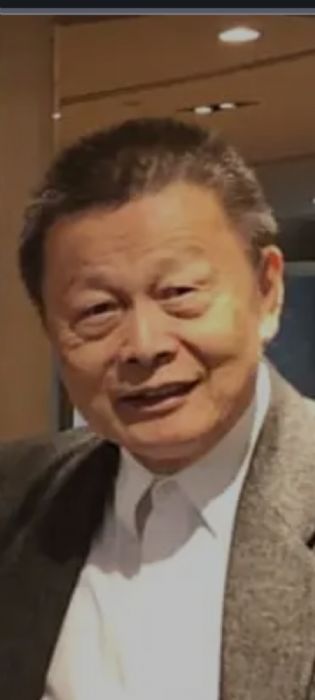
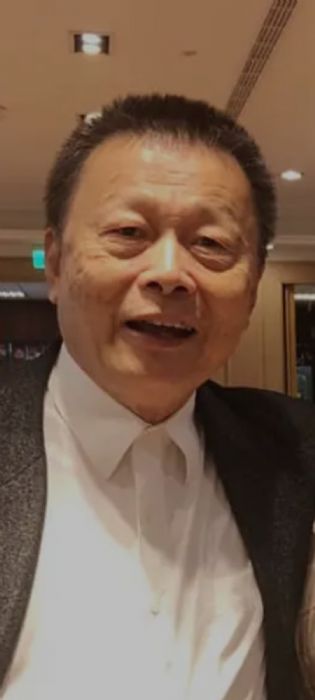
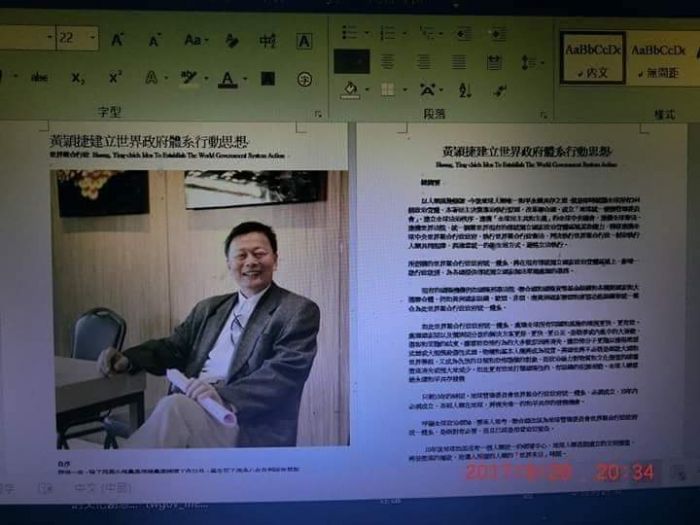
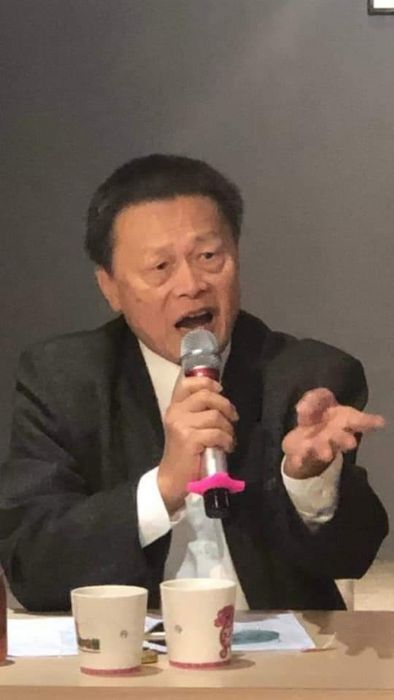
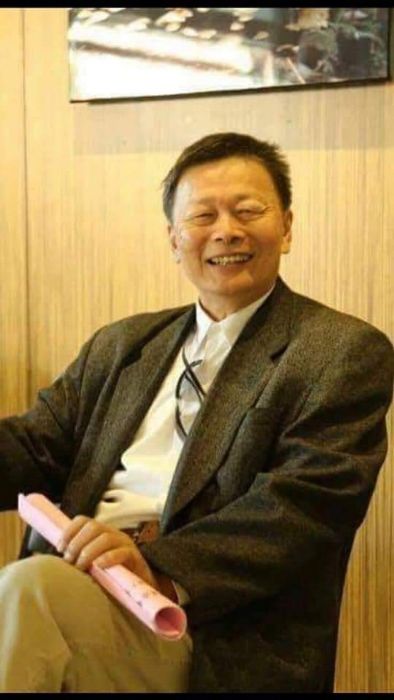
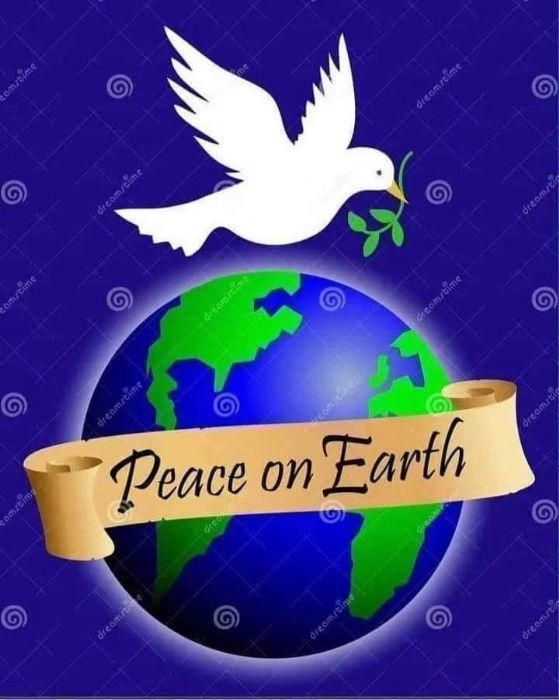
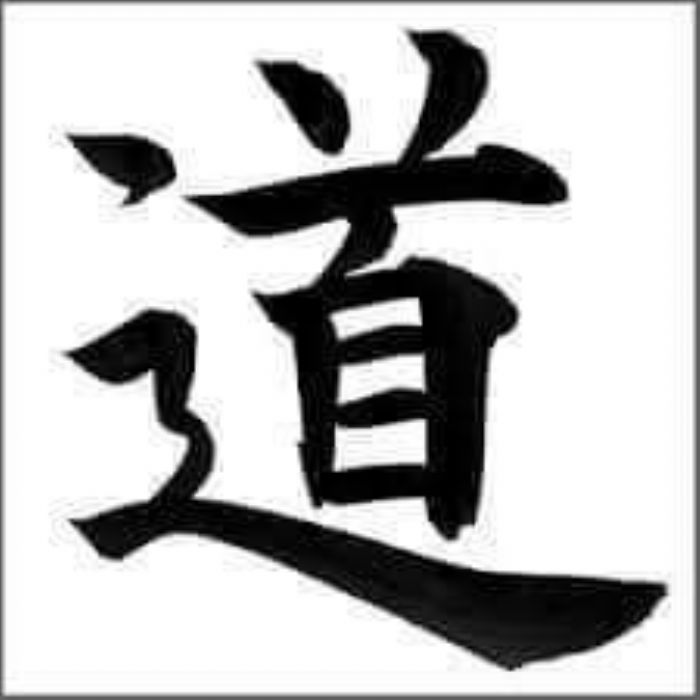
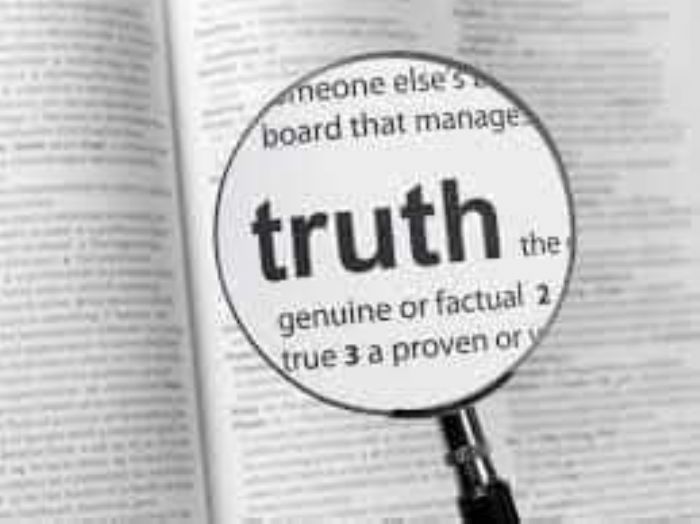
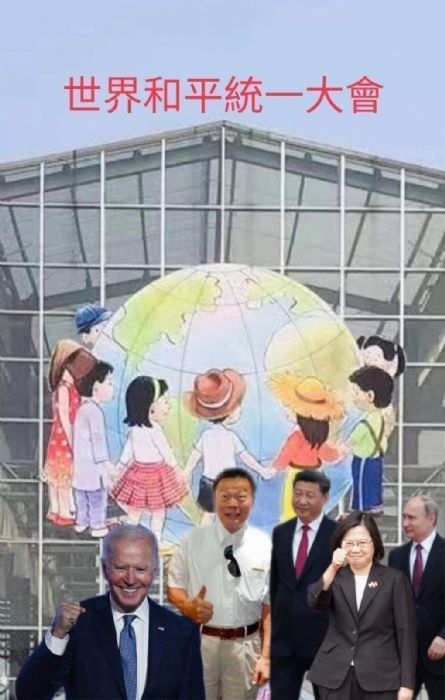
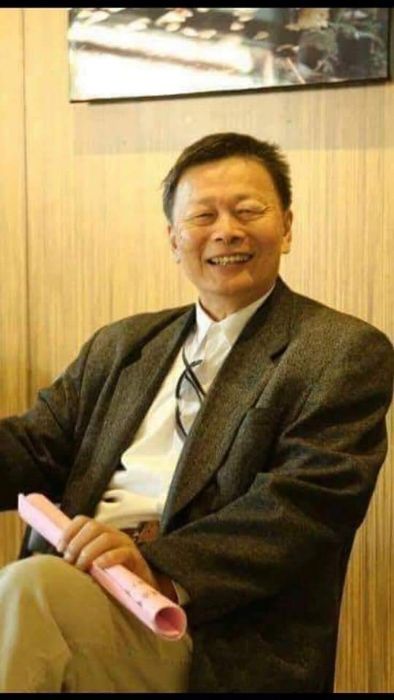
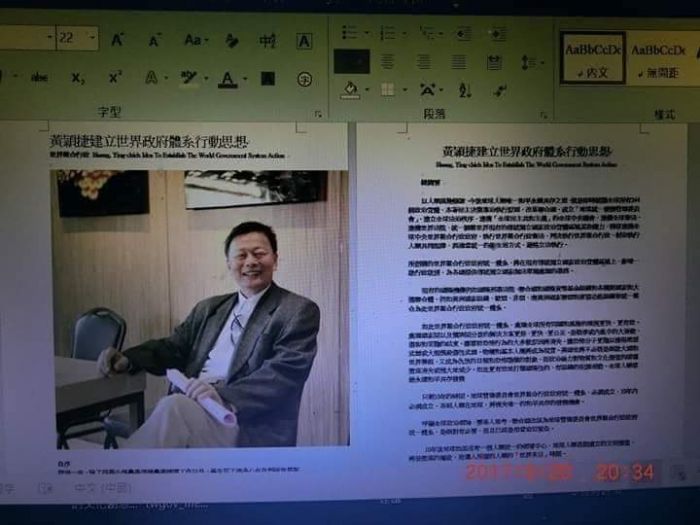
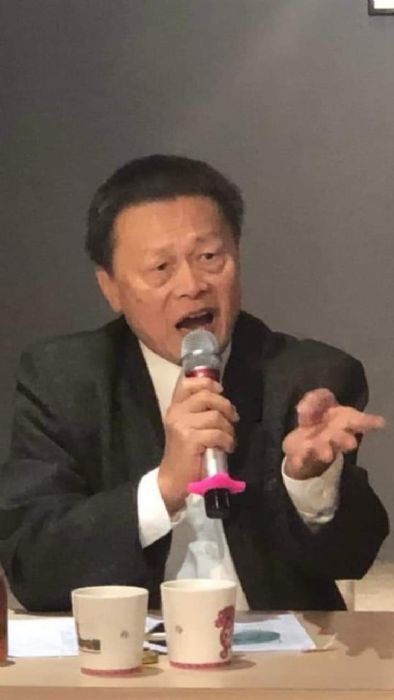
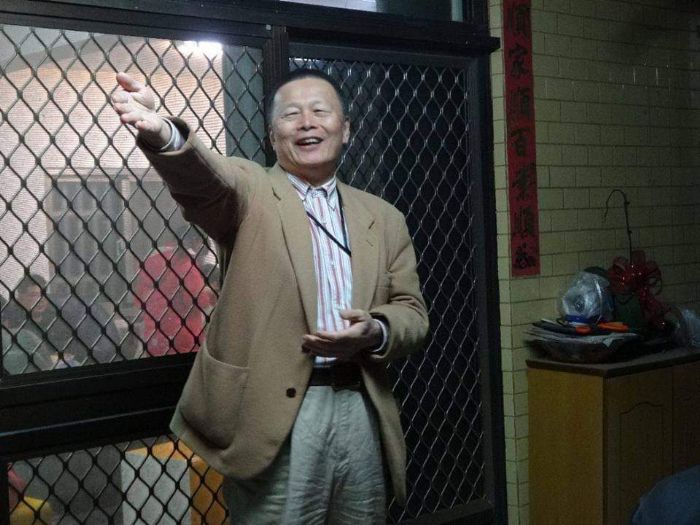
|